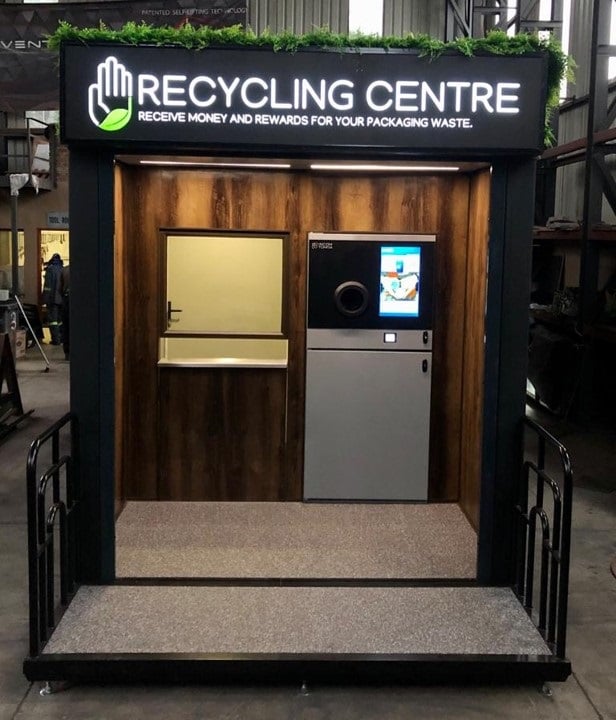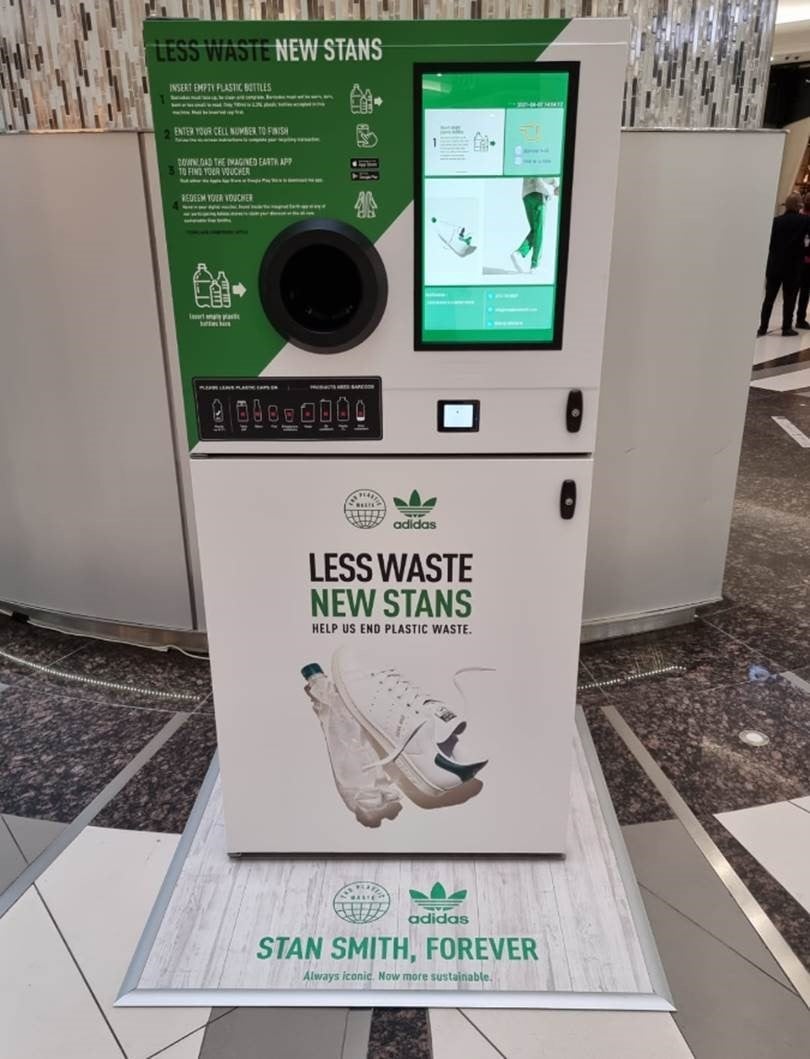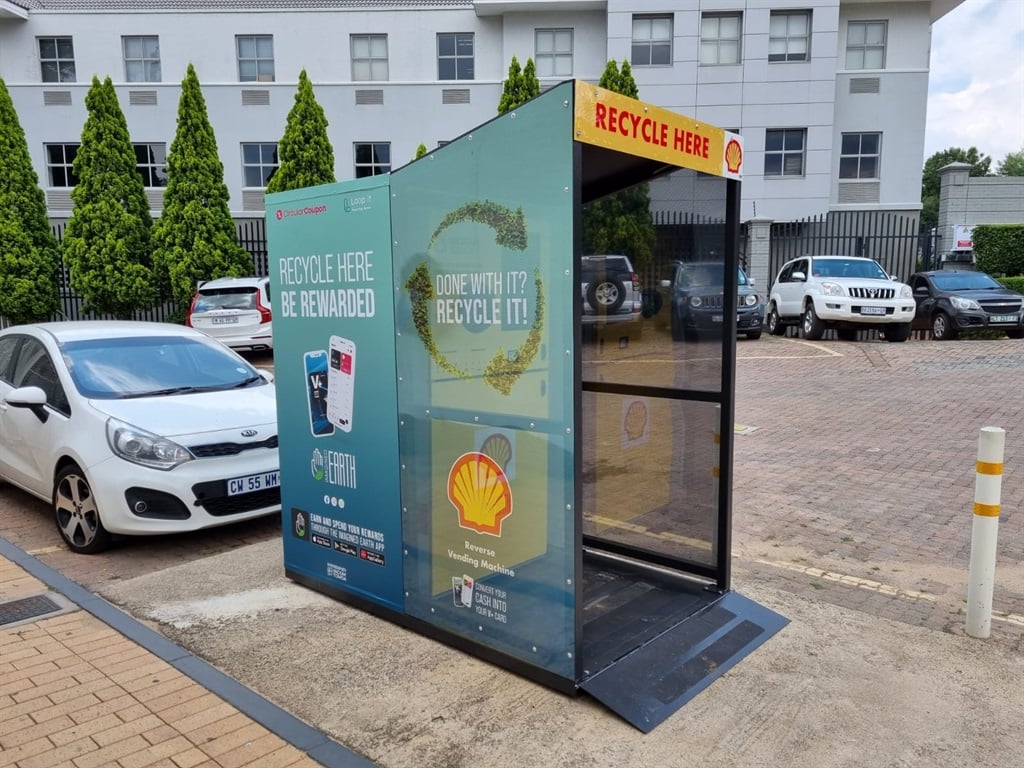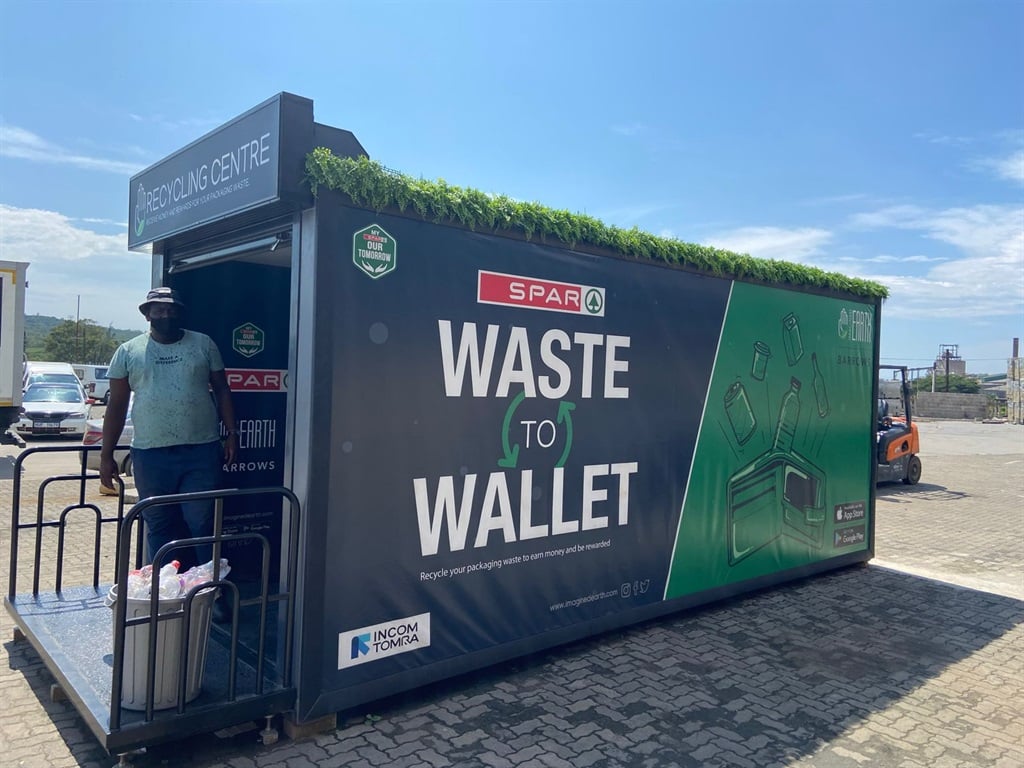
An Imagined Earth reverse vending machine.
Supplied / Justin Needham
- Imagined Earth allows users to convert recyclable materials into credit that can be used to buy shares on the JSE through EasyEquities.
- The company is rapidly expanding its network of reverse vending machines across the country.
- In its eight years of operation, the company has diverted 490 tons of recyclable waste away from landfills.
- For more stories, visit the Tech and Trends homepage.
A recycling company is using technology to enable South Africans to convert recyclable materials into credit that can be used to buy shares on the JSE through EasyEquities.
In various parts of the country, Imagined Earth has rolled out a network of reverse vending machines which reward those who deposit recyclable materials into them with credit that can be redeemed with various partners, including EasyEquities, Vodacom and MTN.
After downloading the Imagined Earth mobile application and registering, users visit an Imagined Earth vending machine, which can be located on the app, with their recyclables. After signing in on the machine, recyclable material is scanned and deposited in exchange for credit that is loaded on to a user’s account.
“We have come to market knowing that we are running an incentive-based model, which is returning the recyclable value of an item to the consumer as a way to introduce reverse vending machines into the country,” said Justin Needham, the CEO of Imagined Earth.
Imagined Earth was started eight years ago and is beginning to grow rapidly as its user base, number of machines and volume of materials is increasing rapidly.
Over the eight years, 6.5 million individual units of recyclables have been deposited, of which 2 million were deposited in 2023 so far. The company has diverted 490 tons of recyclable waste away from landfills, of which 143 tons were diverted this year alone.
“There is definitely an upward trend from a usage perspective and an upward trend from a number of units perspective. We have a growth in users, which is great,” said Needham.
A part of this growth is explained by having more machines in the market, but there are also more users on the platform.
Imagined Earth currently has 131 reverse vending machines, six sites that have container-sized deposit zones and two recycling stations.
The sites are dotted across some of the more built-up areas of the country, including Cape Town, Johannesburg, Pretoria, Durban and Gqeberha.
Needham said the company has its eyes set on expansion. By year-end, Imagined Earth envisages a network with 200 reverse vending machines, six container solutions and three recycling stations, said Needham.
EasyEquities chief marketing officer Carel Nolte touted the partnership as a success and said they had big ambitions for the project.
He would like there to be “thousands of sites where people can recycle and get Easy Credits”.
“EasyEquities wants to remove all barriers to investing and not having money, and using your own and others’ waste products to earn credits is part of that,” said Nolte.
EasyEquities allows for fractional share investing, meaning investors can start investing with very little money.
Tech meets recycling
Needham said technology plays a massive role in improving the collection and recycling rate in South Africa.
The collection rate for polyethylene terephthalate (PET) plastic products in South Africa is around 62%, meaning that 62% of the PET plastic products that are produced are collected. But the recycling rate, where the product is reused, is much lower, he said.
He added:
A lot of that waste is picked from bins, it’s picked from streets, it’s got contaminants and it’s got damage, which means our recycling rates are a lot lower than our collection rates, which is an important thing in understanding how we are doing from a recycling perspective in South Africa.
He said reverse vending machines separate waste streams as recyclables are deposited, which helps with the recycling rate.
READ NOW | Incentive-driven recycling launched in Lwandle
He also said that scanning products before they are deposited provides a rich dataset about the products and brands which enter the machines.
“What this is doing is starting to lift the veil on who the polluters are and who is putting packaging into the market,” said Needham.
“We are looking to utilise data to provide greater levels of transparency.”
The recycling industry has always been based on weight, and weight means that you remove the need to identify what brand [is being recycled]. PET is PET, whether it comes from Coca-Cola or from Mountain Falls. It’s nondescript.
But reverse vending allows for data collection at a more granular level, meaning they are able to tell exactly which products are recycled.
“I think there’s going to be a lot of noise in the space over the next sort of six to 18 months about how technology can be used to assist consumers and promote the environment,” said Needham.


